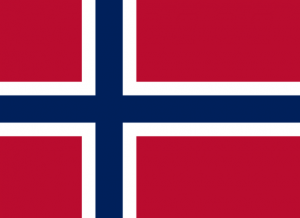Language/Norwegian-bokmal/Vocabulary/Family-and-relationships
Introduction[edit | edit source]
In this lesson, we will focus on one of the most important aspects of everyday life: family and relationships. Understanding and being able to talk about family members and relationships is essential for effective communication in any language. In Norwegian Bokmål, this topic is particularly important as it allows us to express our connections with others and discuss our personal lives. By the end of this lesson, you will have a solid foundation in the vocabulary related to family and relationships in Norwegian Bokmål.
Family Members[edit | edit source]
Let's start by learning the Norwegian Bokmål words for various family members. Family is an integral part of Norwegian culture, and it's common for Norwegians to have strong bonds with their relatives. Knowing the correct terms for family members is essential for everyday conversations and social interactions.
Here are some commonly used family members in Norwegian Bokmål:
| Norwegian Bokmål | Pronunciation | English |
|---|---|---|
| mor | [moːr] | mother |
| far | [faːr] | father |
| søster | [søːstər] | sister |
| bror | [bruːr] | brother |
| sønn | [sœn] | son |
| datter | [dɑtər] | daughter |
| bestemor | [bɛstəmuːr] | grandmother |
| bestefar | [bɛstəfaːr] | grandfather |
| tante | [tɑntə] | aunt |
| onkel | [ʊŋkl̩] | uncle |
| nevø | [neːvø] | nephew |
| niese | [niːsə] | niece |
Keep in mind that the pronunciation provided here is just an approximation, and the actual pronunciation may vary depending on the speaker's dialect. Practice saying these words aloud to improve your pronunciation skills.
Now, let's explore some additional family members:
| Norwegian Bokmål | Pronunciation | English |
|---|---|---|
| barnebarn | [ˈbɑːrnəbɑrn] | grandchild |
| oldeforeldre | [ʊldəfɔrəldrə] | great-grandparents |
| søskenbarn | [ˈsøskənbɑrn] | cousin |
| svigerfar | [ˈsviːgərfɑːr] | father-in-law |
| svigermor | [ˈsviːgərmɔr] | mother-in-law |
| svoger | [ˈsvuːgər] | brother-in-law |
| svigerinne | [ˈsviːgərɪnə] | sister-in-law |
These additional family members are often encountered in extended family settings and are important to know when discussing family relationships.
Relationships[edit | edit source]
In addition to family members, it's crucial to learn the vocabulary related to relationships in Norwegian Bokmål. Whether you are talking about your own relationships or asking about someone else's, understanding these terms will enable you to engage in meaningful conversations.
Here are some common relationship terms in Norwegian Bokmål:
| Norwegian Bokmål | Pronunciation | English |
|---|---|---|
| ektefelle | [ˈɛktəfɛlə] | spouse |
| kjæreste | [ˈçæːrɛstə] | boyfriend/girlfriend |
| forlovet | [fɔrˈluːvət] | engaged |
| gift | [ɡɪft] | married |
| skilt | [skɪlt] | divorced |
| enke/enkemann | [ˈɛŋkə/ˈɛŋkəman] | widow/widower |
Understanding these relationship terms will allow you to discuss your own relationship status or inquire about someone else's in a respectful manner.
Cultural Insights[edit | edit source]
Norwegian culture places a strong emphasis on family and relationships. Family ties are highly valued, and Norwegians typically maintain close relationships with their immediate and extended family members. Norwegians often prioritize spending quality time with their loved ones, and family gatherings and celebrations are common.
In addition to the traditional family structure, Norway recognizes and respects diverse family arrangements, such as same-sex marriages and cohabitation. It is important to note that Norwegian society is generally accepting and inclusive, and individuals are free to form their own definitions of family and relationships.
Historically, Norway has been influenced by a strong sense of community and interdependence. This has shaped the importance placed on family and relationships, as well as the value placed on supporting and caring for one another.
Exercises[edit | edit source]
Now, let's practice using the vocabulary related to family and relationships in Norwegian Bokmål. Choose the correct word to complete each sentence:
1. Min __ er en veldig snill mann. (father) 2. Har du noen __? (siblings) 3. Hun er min __. (daughter) 4. Vi er __. (married) 5. Han er min __. (nephew) 6. Har du noen __? (cousins) 7. De er mine __. (grandparents) 8. Er hun din __? (sister-in-law)
Answer Key: 1. far 2. søsken 3. datter 4. gift 5. nevø 6. søskenbarn 7. besteforeldre 8. svigerinne
Conclusion[edit | edit source]
Congratulations! You have successfully learned the vocabulary related to family members and relationships in Norwegian Bokmål. Being able to discuss these topics is crucial for effective communication and understanding Norwegian culture. Practice using these words in everyday conversations to reinforce your learning. Keep up the good work!
Other Lessons[edit | edit source]
- Idiomatic expressions and phrases
- Time
- Asking Directions
- Numbers
- Valentines Day
- Useful Sentenses
- Idiomatic Expressions
- Free Time Activities
- Vehicles

